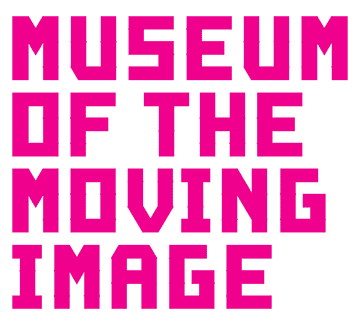
SCREENING, SCREENING + DISCUSSION
Talking Like a Robot: HAL 9000, Her, and a History of Voice Synthesis
Sunday, Sep 26, 2021 at 6:30 pm
Part of Science on Screen
With voice studies researcher Marit MacArthur and cultural historian Chrispher Grobe in person
Join us for a special double feature starring two parallel voices—HAL 9000 and OS1, as seen in, respectively, 2001: A Space Odyssey and Her—and hear from two experts who will speak about the growing field of voice studies and interactions between cinematic portrayals of A.I. and technological developments in the field.
2001: A Space Odyssey
Dir. Stanley Kubrick. 1968, 149 mins. (plus intermission). DCP. With Keir Dullea. As brilliantly engineered as the space program itself, Stanley Kubrick’s mysterious and profound epic—“the ultimate trip”—is about nothing less than the beauty and the banality of civilization, blending cool satire, an elaborate vision of the future, and passages of avant-garde cinematic inventiveness.
Her
Dir. Spike Jonze. 2014, 126 mins. DCP. With Joaquin Phoenix, Amy Adams, Scarlett Johansson. Nominated for five Academy Awards, Spike Jonze’s solo screenwriting debut Her is set in near-future Los Angeles where a heartbroken Theodore Twombly (Phoenix) finds a new emotional connection when he activates an advanced operating system with a compelling voice and personality (Johansson). Her is a love story with enduring relevance, speaking to the nature of intimacy, the risks of love, and the definition of humanity.
12:30 p.m.: 2001: A Space Odyssey
3:30 p.m.: “Talking Like a Robot” Talk and Q&A
5:00 p.m.: Her
About the talk:
For centuries, people have tried to create perfect replicas of the human voice. The limitations of those attempts—choppy rhythm, slow pace, monotonous pitch, low expressivity—solidified into a vocal cliché: robot voice. Before technologists discovered how to transcend this stilted voice, filmmakers imagined how it might be done, and actors performed the future of A.I.
HAL 9000, the intelligent voice assistant in 2001: A Space Odyssey, marks a turning point in the history of robot voices as performed and as they would actually be developed in labs. Stanley Kubrick and Arthur C. Clarke studied cutting-edge research in A.I. and synthetic speech, and with the help of Douglas Rain (who gave voice to HAL), they created a new and influential example of how it might sound to talk like a robot.
Now, intelligent voice assistants are a reality—and film continues to lead the way in imagining their future. Comparing current technologies (Siri, Alexa, Google Duplex) to recent filmmakers’ visions of how A.I. will talk to us (Ex Machina, Her), this lecture explores how science and cinematic performance interact to shape our technological future. It will also share empirical insights into the voices of robots and actors playing A.I., enabled by new digital tools that can analyze performed speech with precision and rigor.
About the speakers:
Christopher Grobe is a cultural historian of the performing arts and the author of The Art of Confession: The Performance of Self from Robert Lowell to Reality TV (2017). The Art of Confession tells the story of how confessional storytelling pervaded American culture over the last 75 years. His next book concerns how people, techniques, and ideas from the arts have shaped A.I. and social robotics. He is an associate professor and chair of English at Amherst College.
Marit MacArthur’s research on the art and science of performative speech has been published in the Journal of Cultural Analytics, PMLA, Stanford’s ARCADE Colloquy, Sounding Out!, and The Paris Review Online. In 2018 and 2019, she co-directed Tools for Listening to Text-in-Performance, funded by a NEH Digital Humanities Advancement grant, and she is co-investigator on SpokenWeb, a national archive of literary recordings for teaching and research supported by a 7-year CA$2.5 million SHHRC grant. She teaches in the University Writing Program and is affiliate faculty in Performance Studies at the University of California, Davis.
